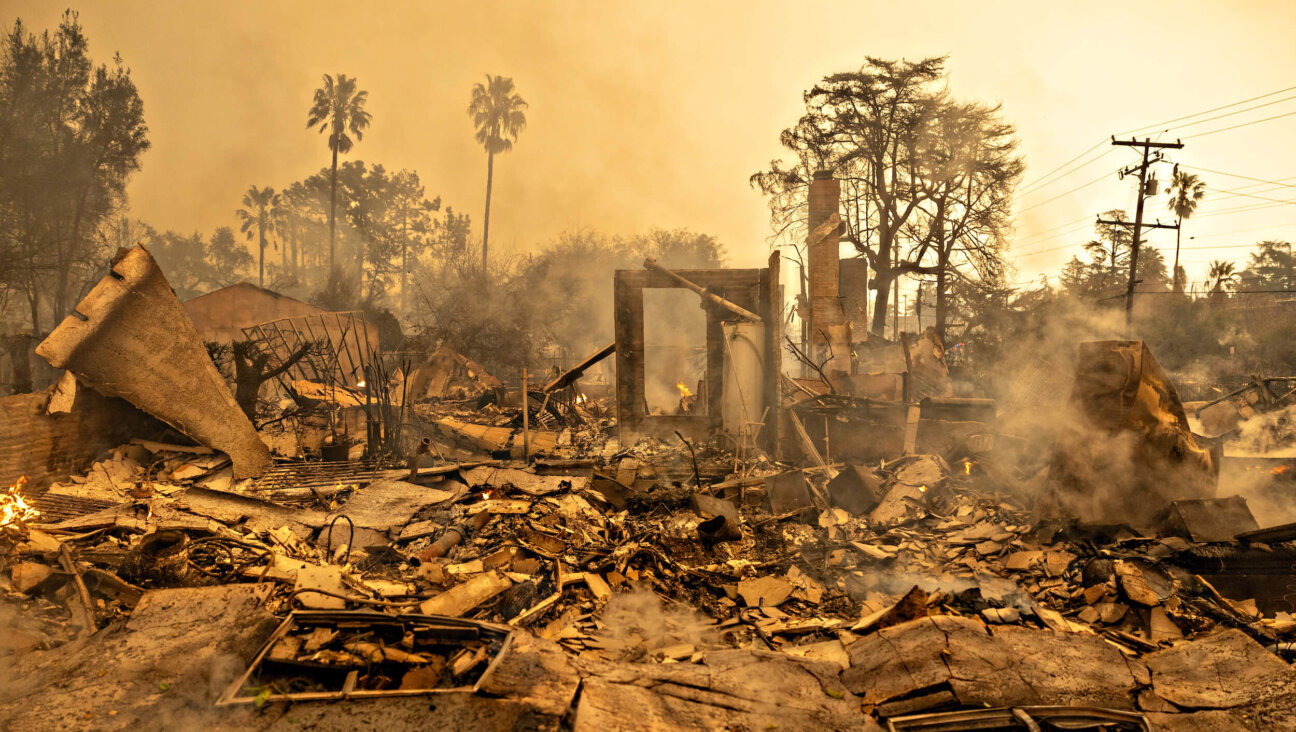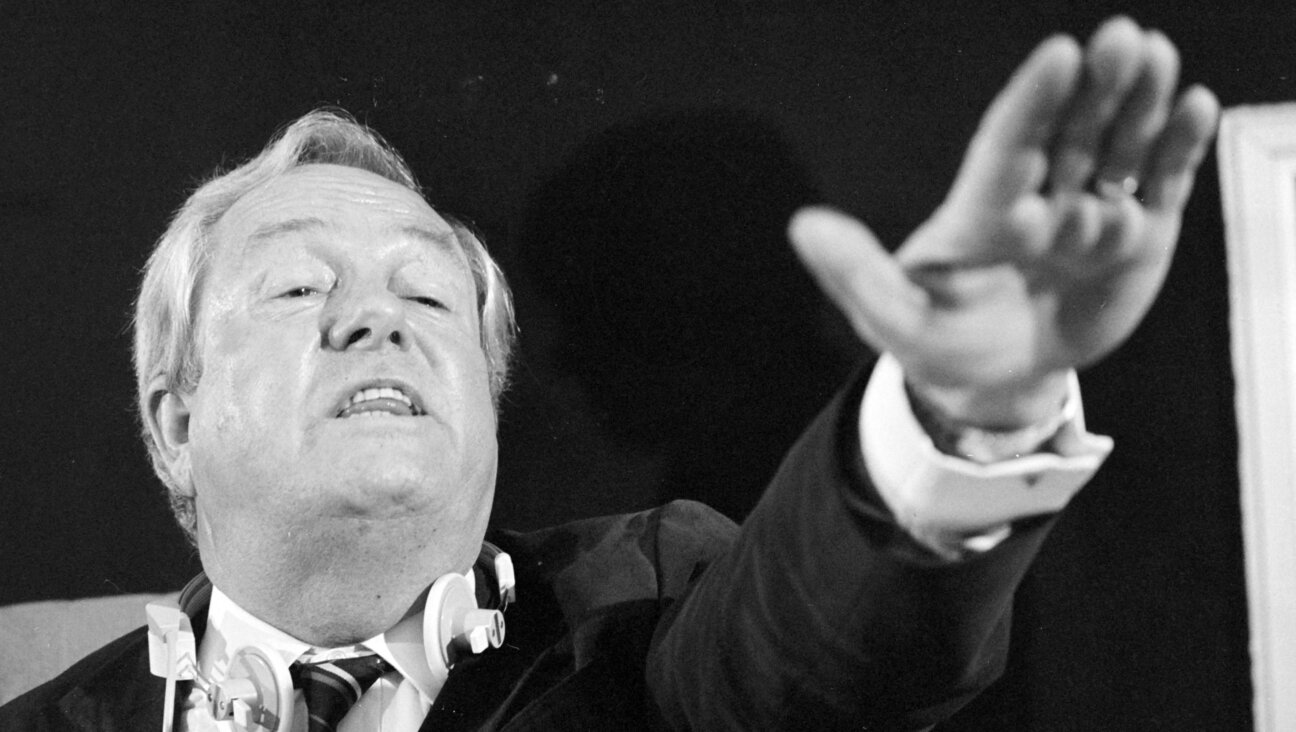Recovery and Hope
A great deal has been lost in this summer of fear and death, much of it irretrievably. Hundreds of innocent Israelis and Lebanese have lost their lives; thousands more have lost limbs, loved ones, homes, a livelihood.
Millions of others around the world have lost something very nearly as precious: hope. As Oz Almog, the Israeli scholar and artist, writes in his Page 1 essay this week, the world seems to be swirling downward with startling rapidity into a maelstrom of hatred and violence that recalls nothing so much as the dark days before World War II. It’s a view shared by growing circles of people in America and the West these days, though not everyone agrees with Almog’s prognosis. There are those among us — one hears their voices almost every day now, usually in hushed, fearful whispers — who despair of any victory. They say the rift between the West and Islam is unbridgeable. Some see a future of endless battle. Some even wonder whether Israel can survive over the long run in a region that seems so utterly, unalterably hostile to Jewish nationhood.
And then there are those among us who continue to hope. We hope because we must, because we are taught and commanded to hope, to believe in tomorrow and to work for it — even though it tarries.
What can it mean to hope and work for a better tomorrow in such dark times? It means, first of all, to speak out for a future that is sustainable — and, just as important, achievable.
Israel requires a cease-fire arrangement that leaves its northern border secure from the threat of terrorist rockets and guerrilla attacks. It also needs a postwar environment in which it retains broad support in the international community for the tougher challenges that lie ahead. Those two requirements will be difficult to balance; securing Israel’s north calls for tough measures, but as the last few days have shown, the world’s patience can wear thin all too quickly. Israel still has crucial allies in important places, including Egypt, Turkey, Russia and China. But those friendships are not inevitable. Israel must act with wisdom and flexibility if it hopes to emerge from this war more secure than it was before.
At the same time, it’s not too early to begin envisioning the role that Israel’s closest friends around the world will be called upon to play in the next phase, after the guns are silenced. Nothing can bring back the dead, but much work lies ahead to care for the living. Billions of dollars will be needed to heal the wounded, to rebuild wrecked homes, restore businesses, repair roads and infrastructure. The needs will be enormous — on both sides of the border.
It’s a safe bet that donations will pour in from around the world for the victims in Lebanon. It’s equally likely that Israel will be left to rely on its own resources, coupled with whatever help it can get from world Jewry and perhaps the American Congress. Even after the killing has ended, the humanitarian reconstruction efforts could easily become one more part of the inexorable drift toward polarization and, eventually, new conflict.
Or people of good will could choose another path. Friends of Israel could begin planning now to direct a portion of its fundraising proceeds to Lebanese relief, in the hope that other international relief agencies will reciprocate and direct a portion of their Middle East aid to rebuilding northern Israel.
There are many paths to this end. Such groups as United Jewish Communities and the American Jewish Committee, which have already launched heroic efforts to help Israel in its current need, might direct a percentage of their emergency campaigns toward groups like Save the Children and similar groups engaged in Lebanon aid. Funds could be directed to the American Red Magen David for Israel, for transfer to the Red Cross for specific projects. With enough good will, an emergency partnership could be launched between major Jewish organizations and moderate Arab American or Muslim American organizations to raise relief funds for distribution on both sides of the border.
It’s essential that this work be framed as an integral part of the overall Jewish community effort to stand with Israel, and not as some sort of countermeasure that divides us from Israel and from ourselves. We must act with honor and mercy precisely because we believe that the cause of Israel is just and honorable.
The better world for which we hope may seem distant, but it will not come unless we work to bring it. We may not complete the work, but we are not free to desist.
A message from our Publisher & CEO Rachel Fishman Feddersen

I hope you appreciated this article. Before you go, I’d like to ask you to please support the Forward’s award-winning, nonprofit journalism so that we can be prepared for whatever news 2025 brings.
At a time when other newsrooms are closing or cutting back, the Forward has removed its paywall and invested additional resources to report on the ground from Israel and around the U.S. on the impact of the war, rising antisemitism and polarized discourse.
Readers like you make it all possible. Support our work by becoming a Forward Member and connect with our journalism and your community.
— Rachel Fishman Feddersen, Publisher and CEO























